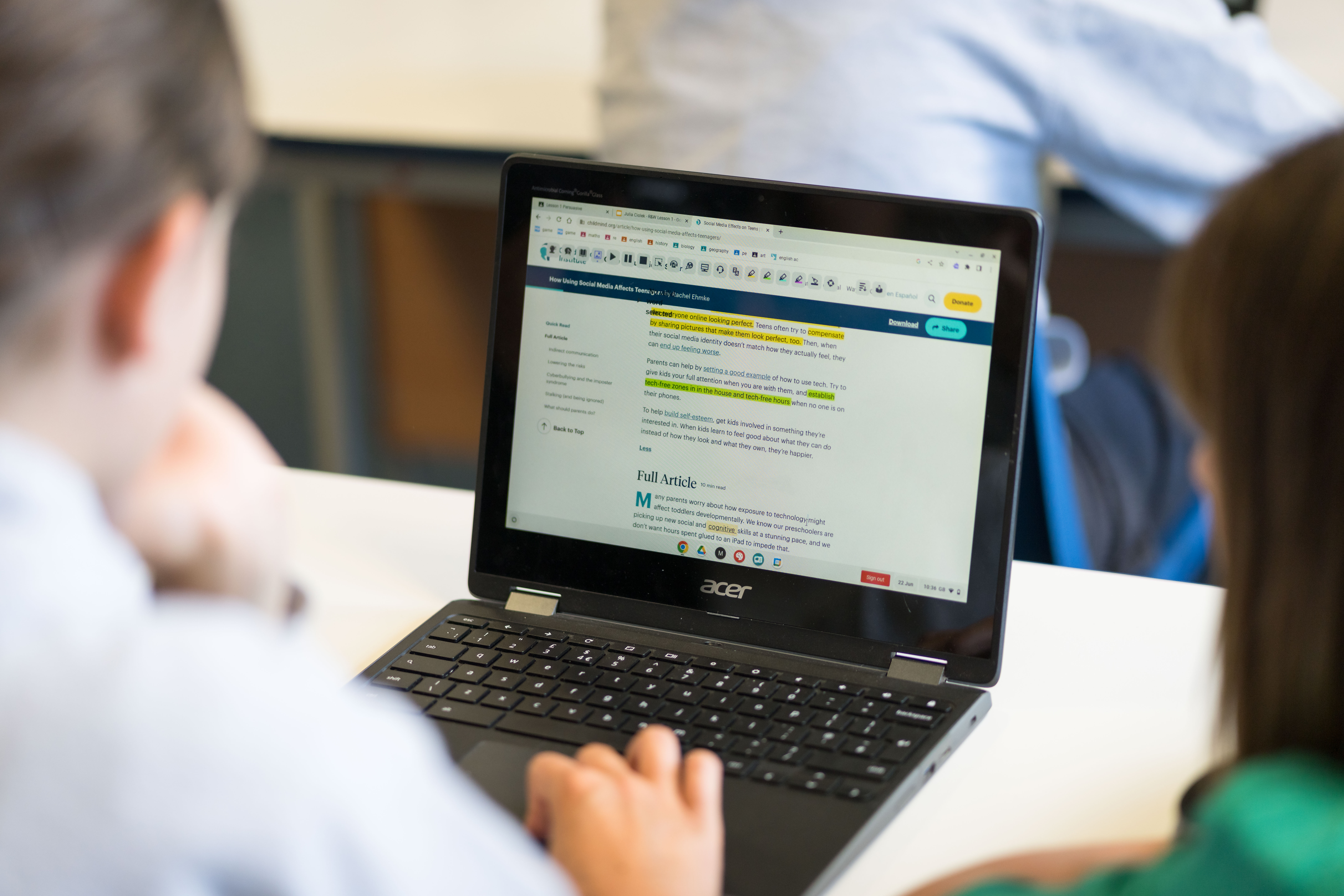Launch of new academy a boost to teacher education

A new teaching academy established by some of Australia’s leading education researchers seeks to ensure more teachers have a working knowledge of the science of learning and how to use evidence-based teaching practices to improve student achievement.
Launching in June, The Academy for the Science of Instruction offers courses ranging from effective instruction in reading and spelling to positive teaching.
It aims to bridge the gap between what is currently being taught to graduate teachers by universities and the knowledge and skills that teachers need to be effective in the classroom.
Dean of The Academy Dr Mark Carter said he expected the initiative to be a game-changer for Australian education and student learning outcomes, which have been in decline for the past two decades.
“Research tells us that teachers, or more specifically quality teaching practice, is the single most important driver of student outcomes,” said Dr Carter.
“Yet we repeatedly hear reports about teachers emerging from years of study feeling that they do not have the know-how to teach children important fundamental skills.
“Some university courses, for example, do not adequately cover the research behind how children learn to read or the importance of explicit systematic phonics instruction, which has been proven to be the most effective way to teach early literacy.
“In many ways, The Academy has been created out of necessity to address these quite serious gaps.”
An initiative of leading education organisation MultiLit, The Academy has been formed in the wake of the recent Teacher Education Expert Panel (TEEP) report, which flagged key knowledge gaps in initial teacher education courses.
According to the report, which was commissioned by the federal government, around one in five beginning teachers leave within the first three years of entering the teaching profession.
Effective instruction and why it matters
The Academy has assembled a team of renowned experts with extensive knowledge and decades of expertise in the science of education and learning.
Its academic board is headed by Emeritus Professor Kevin Wheldall AM, who has been researching how best to teach children who struggle to learn to read for more than 50 years.
The author of more than 350 academic books, chapters, and journal articles, Emeritus Professor Wheldall was one of the first education researchers in Australia to appreciate the importance of explicit instruction, rolling out intensive literacy intervention programs for disadvantaged students across Sydney from the mid-1990s onwards.
“One of the things that is easy to forget as adults is just how challenging it is for a child to learn a completely new skill,” he said.
“It is quite common for educators to confuse the process by which novice learners acquire new skills, such as reading for example, with the way accomplished readers perform these skills.
“Learning to read is not something that develops biologically, like learning to speak.
“It is a secondary skill that, for most people, must be explicitly taught in a structured and systematic manner.
“Explicit instruction typically follows a pattern of the teacher modelling a new skill, followed by guided practice with some helpful feedback, and finally independent practice by the student.
“Further, students typically need repeat exposure to new knowledge and skills before they can master them.”

According to the government-funded Australian Education Research Organisation (AERO), there is strong evidence that explicit instruction optimises learning.
Having conducted a review of more than 328 studies worldwide, AERO found that explicit instruction:
- has a positive impact on student achievement in mathematics, reading, spelling, problem-solving and science;
- works for primary and secondary students; and
- benefits students with and without additional learning needs.
It concluded that explicit instruction was an effective teaching practice across a variety of contexts and for different subgroups of students.
Yet, when the NSW Government recently mandated training for teachers in explicit instruction, there was a public backlash.
Emeritus Professor Wheldall said one of the barriers to reforming ITE was that many faculty staff remained wedded to “antiquated philosophical ideas around education, teaching, and learning”.
“But philosophies like constructivism, which brought us whole language and balanced literacy approaches to reading instruction, are not backed up by empirical evidence that support student learning,” he said.
“The good news is that awareness about the science behind learning is growing and teachers are actively pursuing opportunities, such as professional development courses, to improve their knowledge, understanding, and impact in their classrooms.”
It’s about empowering teachers
The Academy has created a new NESA and TQI-accredited course in Effective Instruction in Reading and Spelling.
In the longer term, it proposes to establish nested postgraduate programs of study (graduate certificate, graduate diploma, and master's) addressing the science of effective instruction.
Effective Instruction in Reading and Spelling covers the research base for the science of reading, the difference between evidence-based and evidence-informed practice, and how to evaluate when practices can be applied to the classroom or instructional setting.
It also covers the most effective way for teachers to plan and sequence oral language, phonemic awareness, and phonics programs to promote word reading.

The course draws on the textbook Effective Instruction in Reading and Spelling, an Australian-first collaboration between internationally renowned and leading local reading researchers, which was published late last year and is already in its second reprint.
Comprehensive professional learning modules in Positive Teaching and Learning are also offered. They provide teachers and education professionals with the knowledge and tools to improve and manage student behaviours – another area where teachers have said their training left them ill-prepared.
“We’re excited to have brought together such a high-calibre team of experts with dozens of years of combined experience in educational research to spearhead this initiative,” said Dr Carter.
“These courses will provide the very best, scientifically supported knowledge and information in an interesting and accessible format.
“Teachers are integral to student success, and they must be equipped with the tools and knowledge to deliver high-quality effective instruction with impact.
“Australian students are depending upon it.”
To find out more go to scienceofinstruction.com.au

Email [email protected]







